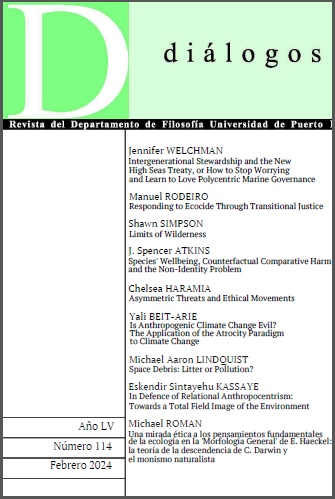Abstract
This paper analyzes how Transitional Justice mechanisms might be deployed to redress injustices resulting from the perpetration of ecocide. It develops the notion of ecocide as social death as a class of environmental harms severe enough to trigger a Transitional Justice response. If a state authorizes ecological destruction in a way that demonstrates wanton disregard for the cultures intimately connected to those ecosystems, then it has violated core liberal principles of respect for pluralism. Transitional Justice can be effectively utilized in overcoming these harms to transform societies from ones that tolerate grave forms of environmental destruction to eco-friendly states that further environmentalist aims. This paper will explore how the four kinds of transitional justice mechanisms can aid in abating and mitigating environmental problems: (1) punitive justice mechanisms (criminal trials, lustration, and sanctions); (2) reparative justice mechanisms (reparations, rehabilitation, memorialization, apologies, and guarantees of non-repetition); (3) truth-oriented mechanisms (truth and reconciliation commissions, reports, and education programs); and (4) institutional reform mechanisms (changing laws, amending constitutions, and modifying institutions).

This work is licensed under a Creative Commons Attribution-NonCommercial 4.0 International License.

